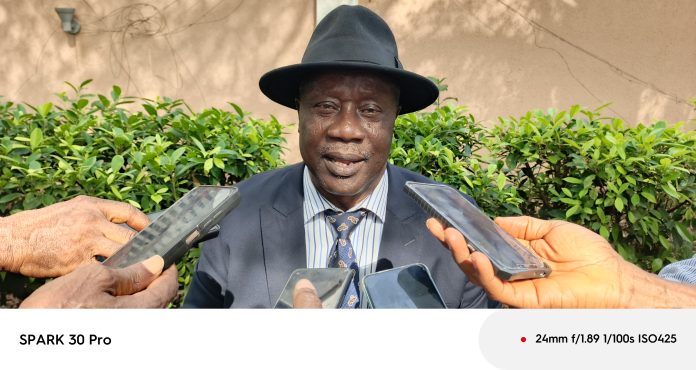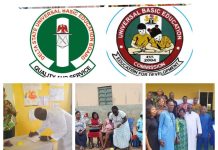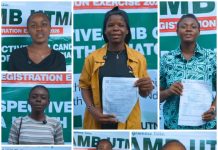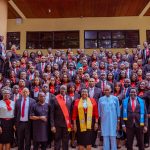The Itsekiri nation has vehemently rejected the Independent National Electoral Commission’s (INEC) proposed constituency delimitation, citing concerns over unfair representation and deliberate marginalization.
The rejection, which has sparked widespread reactions, underscores long-standing grievances of the Itsekiri people regarding political and electoral boundaries in Delta State.
At the heart of the dispute is the claim that the proposed delineation by INEC disproportionately reduces Itsekiri’s political influence, despite their historical and geographical significance in the region.
Itsekiri leaders argue that the planned changes would further erode their representation in elective offices, particularly in the State House of Assembly and National Assembly.
Speaking on behalf of the Itsekiri Leaders Of Thought, Itsekiri prominent leader who doubles as the Secretary of the group, Sir. Amorighoye Sunny Mene, described the proposal as an “orchestrated attempt to diminish the Itsekiri voice in governance.”
They accused INEC of succumbing to political pressure from dominant ethnic groups while ignoring the principles of fairness and equity.
“We reject in totality any form of constituency delineation that seeks to politically emasculate the Itsekiri people.
“I was in the stakeholders’ meeting today, called by INEC, to exhibit the report on the field work, which is the implementation of the Supreme Court judgment that called for fresh designation of wars and pulling units in the World Federal Constituency.
“So today, INEC officially unveiled what they’ve been doing. And we’re not given the opportunity to speak at the venue of the unveiling
because they knew that they had something very inimical to our interests.
“That’s why they didn’t allow anybody to speak. So they didn’t give any opportunity for reaction.
But the report which they handed over to us, we have looked at it.
“And the entire Itsekiri nation has completely condemned
the work done by INEC.
“Not only condemned it, we reject it in its entirety because the fears we exhibited earlier on at the commencement of this exercise
have been proven right.
“That INEC will not be equitable, they will not be fair, they will not be just in the exercise.
“And the report they brought today, as what they have done all these months, has shown that INEC is very biased.
“INEC is anti-Itsekiri. And INEC is not just, it’s not fair. So we thought we should tell the whole world what has happened”.
“This is not just about electoral boundaries; it is about our right to fair representation, which has been systematically suppressed over the years,” the Itsekiri leader declared during a press conference in Asaba, the State Capital on Friday April 4, 2025.
Critics of the proposed delimitation point out that past electoral arrangements have already disadvantaged the Itsekiri people, despite their significant contributions to the socio-economic development of the State, particularly in the oil and gas sector.
They insist that any new boundary adjustments must take historical injustices into account and ensure equitable representation.
The Itsekiri nation has vowed to resist the proposed delineation through legal and political means, warning that failure to address their concerns could lead to heightened tensions in the region.
They have also called on President Bola Ahmed Tinubu’s administration and the National Assembly to intervene, ensuring that the delineation process is transparent, inclusive, and just.
He stated that the new ward distribution is as follows:
Warri North – Ijaw: 10 wards, Itsekiri: 8 wards
Warri South West – Ijaw: 15 wards, Itsekiri: 4 wards
Warri South – Ijaw: 3 wards out of 20, with the Urhobo holding the majority.
Before this recent delineation, the breakdown was:
Warri South West: 10 wards
Warri South: 12 wards
Warri North: 10 wards
These figures have now been revised through the new exercise.
As the controversy unfolds, INEC has yet to issue an official response to the Itsekiri rejection.
However, political analysts suggest that the electoral body may be forced to revisit its proposals to avert a deeper crisis in Delta State’s political landscape.
It would be recall that the Independent National Electoral Commission (INEC), completed the delineation of wards and polling units in the Warri Federal Constituency of Delta State and officially presented its report to stakeholders representing the Urhobo, Itsekiri, and Ijaw ethnic nationalities.
The report was presented during a stakeholders’ meeting held on Friday in Asaba by the Delta State Resident Electoral Commissioner (REC), Sir Etekamba Udo Umoren.
Receiving the report on behalf of their respective groups were Chief Victor Okumagba (Urhobo), Dr. Andrew Igban (Itsekiri), and Dr. Joe Bisina (Ijaw).
This delineation exercise was conducted in line with the Supreme Court ruling of December 2, 2022, which directed INEC to review and properly restructure the wards and polling units in Warri North, Warri South, and Warri South West Local Government Areas.
INEC Chairman, Prof. Mahmood Yakubu—represented by Prof. Rhoda Gumus, National Commissioner in charge of Cross River, Delta, and Edo States—commended the communities for their cooperation.
He noted that the successful fieldwork, carried out between July 10 and 27, 2024, reflects the people’s dedication to democratic principles and reinforces the Commission’s credibility.

















